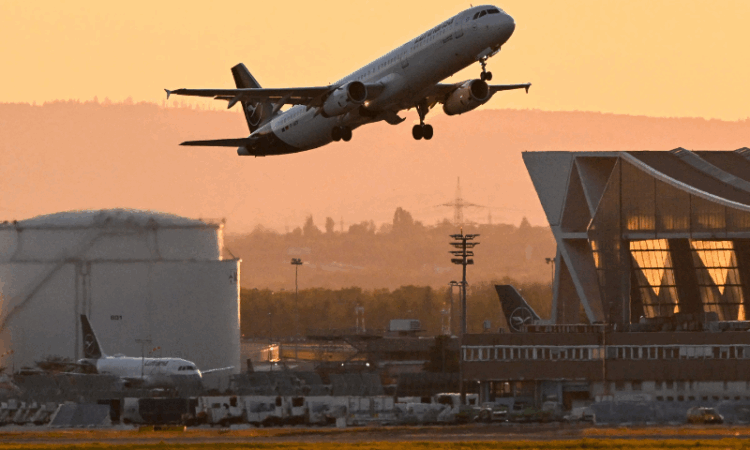Islamabad/New Delhi, May 7, 2025: Rising military tensions between India and Pakistan have forced multiple international airlines, including United Airlines, Korean Air, and Singapore Airlines, to reroute or cancel flights, while nearly a dozen Indian airports were temporarily shut on Wednesday following India’s airstrikes into Azad Jammu & Kashmir.
The latest escalation, which comes after a deadly bombing in Indian Illegally Occupied Jammu and Kashmir (IIOJK) last month that killed 26, has raised fears of broader conflict and disrupted global aviation routes across South Asia and the Middle East. Pakistan retaliated by shooting down five Indian fighter jets, according to its military, leading to further volatility in the region.
Flight tracking data showed a surge in aircraft diverting over Oman, the UAE, and Kuwait, signaling growing airspace congestion. Authorities in Pakistan said that 57 international flights were in its airspace at the time of India’s strike. The office of Prime Minister Shehbaz Sharif warned that India’s actions posed a serious threat to international commercial traffic, especially Gulf carriers, and endangered civilian lives.
India’s civil aviation ministry did not immediately respond to Pakistan’s claims.
In recent days, both countries have partially closed their airspaces to each other, intensifying pressure on global airlines already grappling with disruptions from other regional conflicts. Airlines such as Lufthansa, KLM, Thai Airways, and China Airlines have altered or suspended flights traversing Pakistani and Indian airspace.
According to FlightRadar24, as of 1030 GMT, 3% of scheduled flights in India and 17% in Pakistan were cancelled. India’s largest airline, IndiGo, cancelled 165 flights through Saturday morning, with shares falling 1.1% on the Bombay Stock Exchange. Air India, SpiceJet, and Akasa Air also cancelled multiple flights.
Pakistan’s Civil Aviation Authority later confirmed that its airspace had reopened, and all major airports were “fully functional.” However, civilian air traffic over northwestern India remained sparse, as visualized on live flight trackers.
Airlines take detours
- Korean Air rerouted its Seoul–Dubai flights through a southern corridor over Myanmar, Bangladesh, and India, bypassing Pakistani airspace.
- Singapore Airlines confirmed it had stopped flying over Pakistan since May 6.
- United Airlines cancelled its Newark–New Delhi flight, citing airspace limitations.
- Thai Airways rerouted several South Asian and European flights starting early Wednesday.
- China Airlines reported disruptions on routes to London, Frankfurt, and Rome.
- Lufthansa’s Delhi–Frankfurt flight took 30 minutes longer than usual, further indicating changes in routing.
The Association of Asia Pacific Airlines (AAPA) expressed serious concerns over the conflict’s operational and safety impact on commercial aviation.
“Beyond cost and disruption, GPS spoofing in conflict zones presents one of the gravest risks to airline safety,” AAPA said in a statement. GPS spoofing involves manipulating aircraft navigation systems, potentially steering them off course—a threat heightened in volatile regions.
As tensions simmer, aviation authorities and airlines remain on high alert, monitoring regional developments and adjusting operations to ensure passenger safety and route efficiency.







